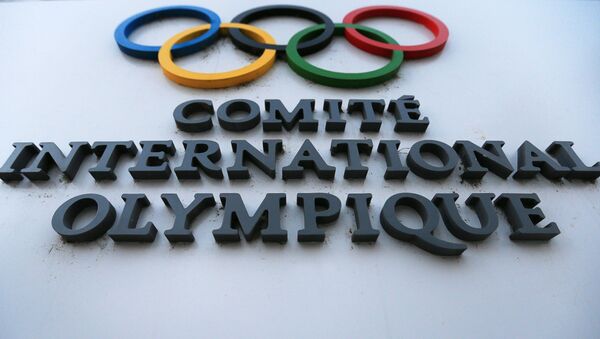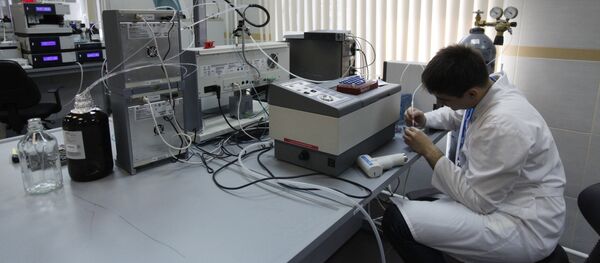The International Olympic Committee has ruled on Tuesday that a special commission will select clean Russian athletes who will be able to compete at the 2018 Winter Olympic Games in South Korea's Pyeongchang.
The IOC has listed the criteria for the sportsmen:
-
Athletes must not have been disqualified or declared ineligible for any Anti-Doping Rule Violation.
-
Athletes must have undergone all the pre-Games targeted tests recommended by the Pre-Games Testing Task Force.
-
Athletes must have undergone any other testing requirements specified by the panel to ensure a level playing field
These clean athletes "will compete with a uniform bearing this name and under the Olympic Flag. The Olympic Anthem will be played in any ceremony."
Thomas Bach, the IOC President, has commented on the decision:
"As an athlete myself, I feel very sorry for all the clean athletes from all NOCs who are suffering from this manipulation [alleged doping]. Working with the IOC Athletes' Commission, we will now look for opportunities to make up for the moments they have missed on the finish line or on the podium."
Thomas Bach said that there was no reason for Russian athletes to boycott Olympic Games.
"An Olympic boycott has never achieved anything. I don't see any reason for a boycott by Russian athletes, because we allow clean Russian athletes to participate and to show that there are clean athletes in Russia. In this way, we think that clean Russian athletes can be about building a bridge into the future of cleaner sport than erection of a new wall between Russia and the Olympic movement."
IOC President also said that the decision was taken without any political influence.
"The political leaders in the world, as well our sponsors and broadcasters, all have understood that IOC is absolutely neutral politically. We would not allow to be influenced by any kinds of political manipulations. This neutrality has been respected by everybody," Bach told reporters.
Bach also pointed out that clean Russian athletes, be it in individual or team competitions, can take part in the Winter Olympic Games under a neutral flag.
"The decision says clearly that clean Russian athletes whether individuals or team competition can take part under name Olympic Athletes from Russia (OAR)."
"The Disciplinary Commission of the IOC submitted the following recommendations to the Executive Board of the IOC — appropriate measures should be adopted on the one hand to underpin that there was an existence of a manipulation of the anti-doping rules and, on the other hand, those who had responsibility, need to be sanctioned… At the same time, the rights of the individual Russian clean athletes need to be protected," Schmid told reporters.
"We have never seen any such manipulation and cheating, and this has caused unprecedented damage to Olympism and to sports," Schmid said.
In addition, Thomas Bach said that awards ceremonies will be organized during 2018 Winter Olympics in PyeongChang for reallocation of medals received at 2014 Winter Olympics in Sochi.
"We have agreed with the IOC athletes commission that for the re-allocation of the medals we will do our best to organize ceremonies for athletes during the Olympic Winter Games in Pyeongchang 2018 to try to make up for the moments they have missed on the finish line or on the podium."
Meantime, the Executive Board of the International Olympic Committee (IOC) decided on Tuesday to issue a life-long ban for Russian Deputy Prime Minister Vitaly Mutko and former Deputy Minister of Sport Yuri Nagornykh from any participation in all future Olympic Games.
"[The IOC decided] to exclude the then Minister of Sport, Mr Vitaly Mutko, and his then Deputy Minister, Mr. Yuri Nagornykh, from any participation in all future Olympic Games," the statement read.
The IOC also decided to suspend Russian Olympic Committee President Alexander Zhukov as an IOC member, "given that his membership is linked to his position as ROC President," and to withdraw Dmitry Chernyshenko, the former CEO of the Organizing Committee of the Sochi 2014 Olympics, from the IOC Coordination Commission for the 2022 Beijing Winter Olympic Games, according to the statement.
The Committee decided "not to accredit any official from the Russian Ministry of Sport for the Olympic Winter Games." In addition, the Russian Olympic Committee was obliged "to reimburse the costs incurred by the IOC on the investigations and to contribute to the establishment of the Independent Testing Authority (ITA) for the total sum of USD 15 million, to build the capacity and integrity of the global anti-doping system."
READ MORE: Moscow Regrets Growing Attempts to Use Sports As Tool of Exerting Pressure
The Russian national team has been deprived of first place in the medal count at the 2014 Sochi Winter Olympic Games following the IOC’s decision to strip Russia of another two gold medals.



